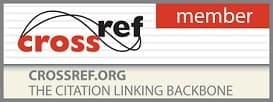
2023, Vol. 6, Issue 2, Part B
A study to assess effectiveness of self-informational module on care during pregnancy in terms of knowledge and practices of antenatal mothers attending OPDs in Indore, M.P.
Dr. Ashok Sharma
Pregnancy, abortion, and childbirth are important milestones in a couple's life. Knowledge and understanding of unknown events during pregnancy can make childbirth a very rich and exciting experience. Pregnancy, including birth, is perhaps the most emotional and dramatic experience of a woman's life. More than 95% of women are pregnant and giving birth normally. These women need Adequate Care during pregnancy to ensure normal body function. Minor but important interventions such as tetanus vaccination, folic acid pills, a healthy diet, and good hygiene are needed to improve a woman's condition and control her lifestyle. Pregnancy although considered a normal process in a woman's life is stressful and can lead to risks and threats.
Methods & Materials: Pre experimental research design was used in present study with 200 antenatal mother at selected OPDs of Indore M.P. Non probability Purposive sampling technique was used 30 self-structured knowledge questioner were used to assess knowledge of antenatal mothers & Check list to assess the practice score regarding care during pregnancy.
Results: The major findings of the study revealed that The data show that majority 28% of Antenatal Mother were in the age group of 24-28 years, 25% of Antenatal Mother were in the age group of 21-23 years, and 25% Antenatal Mother were in the age group of 29-33 years. There was a trace no. of Antenatal Mother in age group of 33-35 years. Overall Majority of the Antenatal Mother were in the age group of 24-28 years. Educational status of m Antenatal Mother 6.5% were illiterate, 37% were in primary level, 37% were up to high school and 19.5% were up to higher secondary. Over all Most of the Antenatal Mother (37%) had educational status up to primary level while only 6.5% of them were illiterate. The 50% of Antenatal Mother were labor, 22% Antenatal Mother in private job and 22% in Antenatal Mother were in self business and only 6% Antenatal Mother in govt. job. The data in show that 40.0% of Antenatal Mother having their monthly income 10001-15000/-, 22% were having 5001-10000/-, 20.5% were having monthly income 5000/- and only 17.5% having More than 15001/- Moreover, 40% were having monthly income 10001-15000/- The data show that 63% of Antenatal Mother were in joint category of family and 33.5% were in nuclear family while 3.5% of Antenatal Mother were in extended category of family. Overall Majority of Antenatal Mother 63% were in the category of joint family and only 3.5% Antenatal Mother were in the extended family. 45.0% Antenatal Mother have 2 children, 28% workers having one child and 22% having 3 child and 5% Antenatal Mother are having only four or more children respectively.
Conclusion: The present study assessed the effectiveness of self-informational module on knowledge & practice on care during pregnancy among antenatal mothers. The study findings concluded that 37% pregnant mother has poor knowledge regarding ANC while 58% were found average in knowledge. After the implementation of self-informational module, there is a significant increase in knowledge of pregnant mother regarding ANC which is calculated by t-test and the result was -18.52 (Table 10) there was significant association between knowledge on ANC with selected demographic variable.
Pages : 75-82 | 206 Views | 95 Downloads

How to cite this article:
Dr. Ashok Sharma. A study to assess effectiveness of self-informational module on care during pregnancy in terms of knowledge and practices of antenatal mothers attending OPDs in Indore, M.P.. Int J Midwifery Nurs Pract 2023;6(2):75-82. DOI: 10.33545/26630427.2023.v6.i2b.146
Related Journals
Subscription Information
- Nursing Journal Subscription
- Medical Journal Subscription
- Pharmaceutical Journal Subscription
- Medicine Journal Subscription
- Anesthesiology Journal Subscription
- Gynecology Journal Subscription
- Subscription of Nursing Journal
- Community Health Nursing Journal Subscription
- Gynaecological Nursing Magazine Subscription
Research Products





 Other Journals
Other Journals
